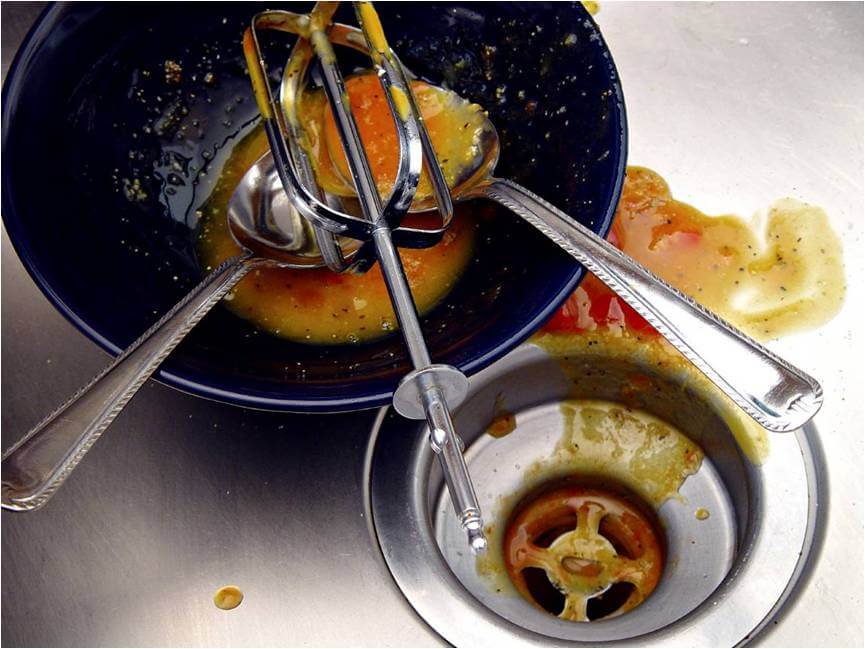Keep your drains flowing smoothly. Easier said than done when it comes to the high-traffic kitchen. There are food particles, soap, and the worst culprit – grease.
Learn what not to put down your kitchen sink.
But you can detect a potential problem even before it hits by recognizing the symptoms of a clogged drain.
What are the symptoms of a clogged drain?
A slow drain or clogged drain in the kitchen will likely smell. That’s because water isn’t properly draining and gets trapped, becoming stagnant. This is especially true in the kitchen sink, where food particles can accumulate and are often stuck along with grease in the drain.
Preventing a clogged kitchen sink
First, do not throw food down the sink. While smaller particles of food will likely make their way into the sink when you’re rinsing or washing dishes, avoid throwing large pieces of food down there. Especially coffee grounds.
Another major cause is grease. Avoid allowing large amounts of grease into the sink as that is a major cause of clogged drains.
Treating a clogged kitchen sink
For a kitchen sink, you can also try using hot water, white vinegar, and baking soda. However, if it’s a grease clog, it may be helpful to use hot water and dish detergent (which cuts grease) to clear a kitchen drain—once treated, flush with hot water.
Still slow? Repeat as necessary.
Need a good local plumber? Agentis Plumbing is available 24/7. And we don’t charge overtime rates for nights, weekends, or holidays! Voted the best plumber in the Lehigh Valley over nine years in a row.

